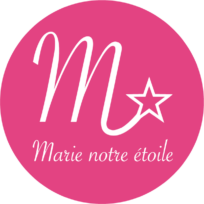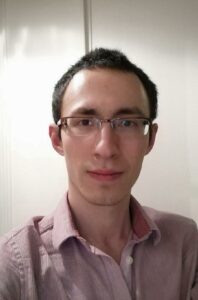Marie notre Étoile met Julien Vibert, oncology physician-researcher at the Gustave Roussy Institute.
Marie notre Étoile: What was the driving force behind your career?
Julien Vibert: Since my early teens, I have felt the vocation to dedicate my professional life to cancer research. On a family level, my mother, who is Chinese, studied medicine in her country and pursued scientific studies in the field of cancer research in Japan: she shared her passion with me very early on. Around me, I also saw people suffering from cancer. I understood that this disease was a scourge and that research had to advance, even if it was complicated compared to other diseases. Right now, it is probably THE scientific and medical challenge to be solved, both in terms of public health and fundamental biology, particularly genetics. I am more of a mathematician (I had considered pursuing scientific studies), but I got hooked at the end of high school when Professor Jean-Claude Chottard, a pioneer of double courses designed to enable medical students to do fundamental scientific research at the same time, came to present his medical-sciences course. So, I started medical studies at the university Paris-Descartes. In my 2th year, I was able to enter this double curriculum and even pass the competitive exam of the École Normale Supérieure. Only four candidates per year were admitted at the time (2010).
The profile of a physician-researcher is actually quite rare in France, and it is a bit of an obstacle course: medical studies are long and demanding, and on top of that you have to study science for a Master's degree and write a PhD thesis. You then have to stop studying medicine for a year to finish your Master’s degree, which I did in 2012. From that moment on, my aim was to do math and provide answers to cancer research with new tools. At the time, there wasn't yet all the hype around artificial intelligence and genomics: it wasn't clear what impact mathematics would have on medicine, and my choice sometimes aroused criticism. But I persisted, and I'm glad I did.
I then continued my medical studies and chose a medical oncology residency, mainly focused on adult patients (pediatric oncology is more the domain of pediatricians). I met Olivier Delattre at Curie and decided to do my PhD with him. So, I stopped my medical studies for three years to do my thesis on Ewing's sarcoma, but also on all other pediatric sarcomas. Our main work was the subject of a short popularization video with the Ligue Contre le Cancer (League Against Cancer), which is on all the social networks: in one minute, I explain sarcoma and our work to children and teenagers.
We have discovered new therapeutic targets in Ewing's sarcoma, as well as some twenty other types of sarcomas, which are currently being studied as targets for vaccines and immunotherapy treatments at Curie. We have patented these therapeutic targets in the hope that they will one day give rise to targeted immunotherapies for all patients, especially children and young adolescents suffering from these sarcomas. Unfortunately, this does not yet apply to osteosarcomas, which are more genetically complex tumors: we are mainly interested in sarcomas with fusion transcripts. I have also set up an artificial intelligence algorithm at Curie which, over the last few years, has improved the diagnosis of sarcomas for all patients.
Now, I have completed my science thesis and have decided to stay at Gustave Roussy, where I am currently finishing my residency. I will be Head of clinic there from November 2023. I was awarded the Bettencourt-INSERM scholarship, which will enable me to devote half my time to research. There are only four per year, which shows how difficult it is in France to find time for research as a physician. This will enable me to continue my clinical activity, following sarcoma patients (mainly adolescents and adults), while working in Gustave Roussy's DITEP department (Department of Therapeutic Innovation and Early Trials), which is in charge of phase 1 clinical research into new drugs. This is the largest unit in Europe. My current work there focuses on sarcomas and the integration of artificial intelligence and data science methods in the field of oncology. Even though I mainly work with adults, my research subject and everything I have done in my science thesis at Curie are naturally part of pediatric oncology, as sarcomas also affect children and teenagers.
Marie notre Étoile: Is sarcoma a rarer disease in adults?
Julien Vibert: There are around a hundred different sarcomas. Some are exclusively pediatric, while others are much more common in adults. On average, however, there are more adult patients, especially elderly ones. In fact, many sarcoma subtypes are quite similar to more common age-related cancers (e.g. liposarcomas), which mostly develop from the age of 60-65. Each type of sarcoma has its own particular epidemiology. In fact, there are two peaks: the first, very early on, concerns children and young adolescents with certain types of sarcoma (notably Ewing's sarcoma). The second peak occurs in adults aged over 60.
(End and thanks)



